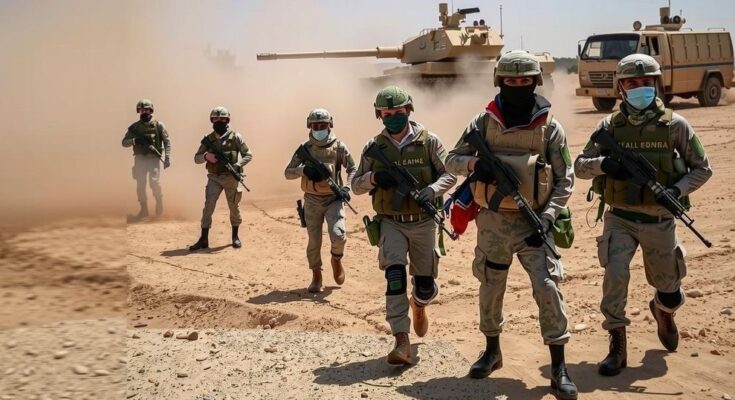The renewed conflict in Syria, sparked by recent Middle East turmoil, witnesses a striking resurgence of rebel forces, particularly HTS, which has successfully reclaimed territory. Despite these developments, Assad’s regime, backed by substantial support and military might, continues to pose a serious challenge to the revolutionaries. The international community remains concerned about the humanitarian implications of the ongoing war and the lack of progressive political solutions.
The re-escalation of conflict in Syria can be traced back to the ongoing turbulence in the Middle East, especially after the Hamas attacks on Israel on October 7 last year. Despite the regime of Bashar al-Assad having maintained power through a decade-long civil war aided by Russia, Iran, and Hezbollah, recent events have demonstrated the resilience and resurgence of rebel forces. Led by the group Hayat Tahrir al-Sham (HTS), a coalition has launched a remarkable offensive, regaining territories that had once been strongholds for the Syrian government, such as the ancient citadel of Aleppo.
HTS, which broke away from al-Qaeda’s strict tenets in 2016, has sought to reshape its image to appeal to broader segments of Syrian society. Ayatollah al-Jawlani, the head of HTS, has distanced the group from its jihadist past, opting for more neutral rhetoric in an attempt to unify various factions against the Assad regime. This offensive has borne fruit as rebel forces capture significant military assets and advance toward strategic cities, signaling a renewed phase of instability.
However, potential responses from Assad’s administration and its remaining allies may mitigate the impact of these gains. The Syrian president still commands substantial support from segments of the populace who perceive his regime as a safer alternative to the extremist groups that once overshadowed the rebellion. Despite the recent successes of HTS and other rebel factions, the future trajectory of the conflict remains uncertain as various external actors, including Turkey and the United States, continue to navigate their interests within the region.
The civil war in Syria, instigated by the Arab uprisings in 2011, has led to a decade of violence characterized by widespread human rights violations and a humanitarian crisis. Bashar al-Assad’s regime has utilized brutal tactics supported by international allies to suppress dissent and maintain control. The recent shifts in the conflict illustrate a struggle for power among various factions, where HTS has emerged as a formidable force, challenging the Assad regime’s control over key territories. The geopolitical ramifications of these developments highlight the international community’s complex role in the balance of power in Syria.
In conclusion, while the recent offensive by rebel forces marks a significant moment in the ongoing Syrian conflict, it does not guarantee a shift in the overall power dynamics. The Assad regime retains a degree of support and may leverage its military allies to counter the advances made by opposition groups. As the situation unfolds, the complex interplay of local and international forces will remain critical in shaping the future of Syria and its people.
Original Source: www.bbc.co.uk




